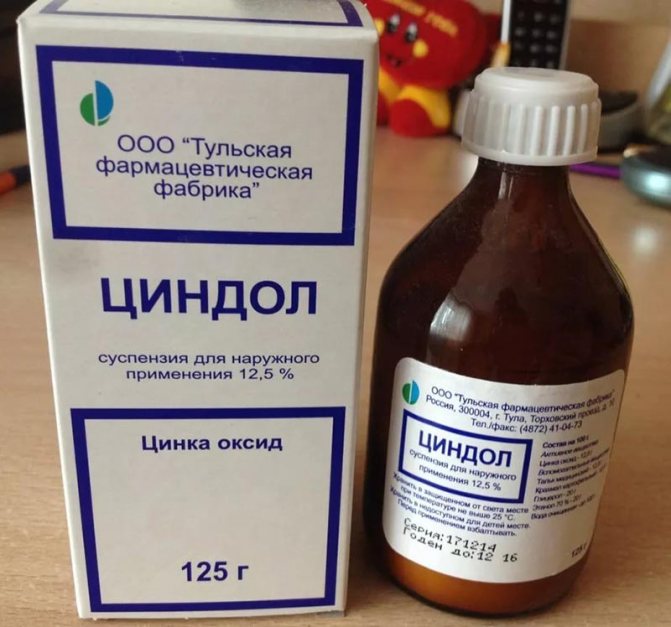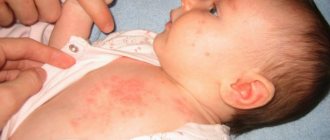A chicken allergy occurs when a person is hypersensitive to chicken protein. This disease can appear in adult patients and children.
However, it appears quite rarely due to freezing and further temperature treatment of allergens, which ultimately die. If, despite any conditions, the patient experiences various symptoms of food allergy, then special treatment is required.
Chicken meat contains a huge amount of animal protein, amino acids, and also contains unsaturated fatty acid. This meat is considered very healthy, comparable to vegetables and dairy products. It is used in many diet menu recipes. It is rich in vitamins and iron.
A child most often has an allergy to egg yolk, cow's milk, fish, therefore, in the absence of an allergic reaction, children are recommended to replace these products with chicken meat. Allergic rejection of chicken meat occurs quite rarely, but if it occurs, various disturbances in the functioning of the immune system appear, especially in a child.
In childhood, the functionality of all body systems is established, which are not yet sufficiently formed and are susceptible to pathological effects. The digestive system is unable to cope with the digestion of the large amount of protein present in chicken meat.
Causes
Chicken meat is considered a dietary product; it is often recommended to include it in the diet if you are intolerant to beef, eggs and other protein products.
But chicken can sometimes lead to the development of food allergies, the main causes of the disease are:
- Meat proteins – purines and serum albumin;
- Alpha-galactose meat. It is to this substance that a severe allergic reaction often occurs - anaphylactic shock.
If an allergy to chicken does not always develop, then first of all you should look for indirect causes of the disease.
And it could be:
- The presence of drugs and vitamins in chicken meat that enhance the growth of poultry;
- Epidermal scales and feather remains on meat;
- Milk protein present in semi-finished chicken products.
Freezing chicken and cooking it destroys most of the allergens.
And if an allergy develops despite these stages of preparing the product, then it must be assumed that the allergens acting on the body are strong and must be identified.
Risk factors
The main risk factor for chicken intolerance is hereditary predisposition. Sensitization is passed along with the genetic code to the child from the parents.
In this case, the very first symptoms of chicken allergy are recorded in babies a few weeks old - this is how their body reacts to the allergens of chicken meat included in the diet of a nursing woman.
Chicken intolerance and sensitivity to epidermal particles and feathers is cumulative, that is, in the first days of contact with the listed allergens there may be no changes in well-being.
An increase in the symptoms of the disease is also noted with excessive consumption of chicken meat.
The likelihood of developing chicken intolerance increases with somatic disorders, these include:
- Pancreatitis. Inflammation of the pancreas leads to insufficient secretion of enzymes involved in the digestion of chicken meat;
- Dysbacteriosis;
- Cholecystitis. With this disease, the outflow of bile, required for normal digestion, is disrupted;
- Chronic inflammatory bowel diseases.
The risk of an allergic reaction to chicken is increased if you have other allergic diseases.
For a defenseless baby, the danger is also great
Some parents rightly wonder whether infants are allergic to chicken. This possibility is quite likely when switching to a regular, nutritious diet. This only happens when parents do not listen to the pediatrician’s recommendations and start feeding their baby meat very early. In such a situation, an acquired reaction to chicken meat may develop.
In addition, there is a high probability of allergies in children if both parents have negative reactions to food products. In such cases the chances are 50/50.
Symptoms
An allergy to chicken in most cases leads to external changes in the skin:
- The body becomes covered with a reddish rash;
- Individual areas with increased dryness and roughness appear;
- The itching is disturbing, sometimes it is so intense that it leads to scratching of the skin and subsequent infection.

Some patients also experience general symptoms of an allergic reaction:
- Allergic rhinitis, occurring with severe nasal congestion, sneezing, and the release of large amounts of mucus;
- Conjunctivitis, manifested by itching of the eyes, increased lacrimation, swelling, pain, redness of the sclera and conjunctiva;
- Tingling and burning around the mouth and on the mucous membranes of the mouth. Lack of timely treatment and further intake of the allergen leads to allergic stomatitis - aphthae - painful ulcers - appear on the gums, the inside of the cheeks, and the tongue;
- Disorder of the functioning of the gastrointestinal tract - nausea, cramping pain, diarrhea;
- Respiratory failure - dry cough, shortness of breath.
If you are intolerant to chicken, the development of anaphylactic shock cannot be ruled out.
Anaphylaxis manifests itself as dizziness, a drop in blood pressure, fainting, and impaired cardiac and respiratory activity. Rapidly increasing swelling that spreads over the face and entire body is also dangerous.
Swelling of the larynx causes suffocation; this condition is especially dangerous in childhood.
Symptoms of chicken intolerance in young children are similar to the symptoms of the disease in adults. But in most cases the clinical picture is more pronounced.
Children are more concerned about itchy skin, which causes irritability, moodiness, poor sleep and loss of appetite.

In infants, the disease may initially manifest itself as symptoms of dysfunction of the digestive system. The most common of these are abdominal colic, bloating, diarrhea and vomiting.
Dyspeptic disorders are indicated by changes in the baby's well-being - he pulls his legs towards his tummy, arches, cries, and refuses to eat.
If chicken intolerance is associated with sensitization of the body to feathers and epidermal skin particles, then the symptoms of the disease affect the respiratory system.
Babies develop rhinitis, there may be a dry allergic cough, swelling and itching of the face. Birds often fill pillows with feathers, so the symptoms of the disease intensify at night and in the morning.
An allergy to chicken in a child leads to a cross-allergic reaction.
This is expressed by intolerance to other types of meat and chicken eggs. Sometimes even the smell of eggs and meat products can trigger an acute attack of allergies.
POPULAR WITH READERS: Mold allergy causes, symptoms, treatment, prevention
Can dietary turkey meat cause allergies?
› Allergens › Food
Turkey is one of the most delicious, valuable and healthy types of meat, approved for consumption even by infants. Pediatricians recommend introducing turkey meat into a child’s diet after reaching 6 months.
But in some cases, an allergy to turkey develops. When diagnosing such a disease, you must stop using this product and contact an allergist to prescribe treatment.
Causes of turkey allergy
Turkey meat is a light, dietary variety recommended for complementary feeding for children. Turkey is well tolerated by the child's body, is completely absorbed by the digestive system and does not put a strain on the digestive system.
True allergic intolerance to this product is extremely rare - no more than 2-3% of cases. Most often, a negative reaction of the immune system is caused by synthetic drugs and antibiotics, which are administered to birds for maximum rapid growth, treatment and prevention of various diseases.
Turkey is an allergen that extremely rarely causes an intolerance reaction compared to other types of meat.
An allergy to turkey in an adult or child sometimes develops due to the whey protein (albumin) or gamma globulin contained in the dietary product.
The human body may lack the enzymes needed to digest them. It is these protein substances contained in this type of meat that provoke the development of allergic intolerance.
The most common causes of turkey allergies are:
- Hereditary predisposition - the likelihood of the disease increases significantly in a child whose parents also suffer from food intolerance.
- Hypoxia during fetal development often becomes the cause of food intolerance in a child at an older age.
- Immune system disorders caused by immunodeficiency syndrome or autoimmune disorders.
- Polluted environmental conditions negatively affect human immunity.
- Insufficient heat treatment of poultry meat or storing turkey in improper conditions.
- If you are allergic to canned food for children, the cause of a negative reaction from the immune system may be starch, preservatives, flavors and other additives that the manufacturer has added to the product.
When answering the question whether turkey is an allergen or not, doctors emphasize that most often food intolerance is caused by synthetic drugs that unscrupulous manufacturers fed poultry for rapid growth. Chemicals can be used not only to increase the body weight of birds, but also to combat various infectious diseases.
In most cases, when an infant is allergic to turkey, the disease is temporary and the child “outgrows” it, which allows him to consume this type of meat in the future. An allergy to turkey during breastfeeding is also common, associated with a reduced level of immunity in a nursing woman.
Symptoms of allergic intolerance
Turkey allergy symptoms develop very quickly, most often within the first hours after eating the product.
Signs of the disease in an adult
The main signs of the disease in an adult:
- skin rashes;
- attacks of nausea, vomiting after consuming the product;
- increased body temperature;
- painful abdominal cramps;
- cough;
- allergic rhinitis;
- bowel disorder accompanied by constipation or diarrhea;
- difficulty breathing, shortness of breath;
- the appearance of mucus in the stool;
- general symptoms of intoxication are weakness, lethargy, general malaise.
If a child is allergic to turkey, sudden changes in behavior may be observed - the baby becomes too lethargic, apathetic, or overly restless, crying or being capricious for no reason.
When the first signs of an allergic reaction appear, you should contact your pediatrician or allergist to select the most effective treatment method.
Allergies in a child
An allergy to turkey in a child is most often accompanied by dermatological manifestations, increased body temperature, upset stool and painful colic in the abdomen. Common signs of food intolerance in a child:
In such cases, you should stop using the product and immediately contact an allergist to select an effective treatment.
Treatment of the disease
Turkey allergy in adults and children requires medical treatment.
Drug therapy
For this disease, the following medications are used:
- Antihistamines - Claritin, Diazolin, Eden, Suprastin. Medicines should only be prescribed by a doctor, since each of them has its own age restrictions, contraindications for use and possible side effects (see in more detail “Antihistamines in the treatment of allergies: mechanism of action and classification”). It should also be taken into account that first-generation antihistamines often cause drowsiness, lethargy and confusion.
- Enterosorbent products – Smecta, Enterosgel, Polysorb, activated carbon. Help cleanse the body of allergens.
- Glucocorticosteroids - Hydrocortisone, Prednisolone and other hormonal drugs. They effectively eliminate the symptoms of an allergic reaction, but are used extremely rarely, as they cause a number of side effects.
- When allergic rhinitis or lacrimation develops, special drops are prescribed - most often Oxymetazoline, Pseudoephedrine, Xylometazoline.
Allergy shots
One of the most effective ways to treat the disease is the technique of artificially developing tolerance to the allergen. Helps quickly get rid of respiratory failure and other manifestations of allergies.
The essence of the technique is to administer an allergic substance to the patient by injection (see “The effectiveness of using allergen-specific immunotherapy (ASIT) in the treatment of allergies in adults and children”).
The active component is administered in minimal quantities, as a result of which the body develops tolerance (addiction) to the allergen.
At the end of the course of therapy, the allergic person’s immune system no longer perceives the active substance as foreign.
Artificial development of tolerance to the allergen is not used to treat infants.
Diet for allergies
A mandatory element in the treatment of any food intolerance is adherence to a special hypoallergenic diet. In addition to turkey meat, it is necessary to exclude other foods from the diet that can trigger an allergy attack:
- all types of poultry - turkey, goose, duck, chicken;
- smoked and semi-smoked sausages, frankfurters and wieners;
- oranges and other citrus fruits;
- melons, strawberries, pineapples;
- cow's milk;
- chocolate, all products containing cocoa powder;
- all types of nuts;
- bee products;
- seafood, all types of fish, red and black caviar;
- chicken, quail and duck eggs;
- any types of alcoholic and low-alcohol drinks.
The basis of a hypoallergenic diet should be foods that are easily digestible and do not put a strain on the digestive system. These include soups made with vegetable broths, boiled potatoes, beef, veal, buckwheat and rice porridge, baked apples, kefir, cottage cheese and other fermented milk products, and weak tea.
The recommended daily calorie intake should not exceed 2800-3000 kcal. At the same time, one meal should be no more than 500 kcal.
Allergy prevention
Answering the question whether there can be an allergy to turkey, doctors emphasize that most often allergic intolerance develops in childhood. To avoid this, it is recommended to introduce poultry meat into the infant’s diet only after reaching 7-8 months of age. If the child is exclusively breastfed, complementary foods are introduced even later, after 8-9 months.
“Acquaintance” with complementary foods must begin gradually. On the first day, it is best to give your baby no more than half a teaspoon of meat and carefully observe the child’s reaction. If the baby’s condition has not worsened, the amount of product can be increased - but this is best done gradually, over 10-15 days.
Basic rules for introducing complementary foods to infants:
- a new product must be introduced into the child’s diet gradually;
- “acquaintance” with complementary foods is best to start with a one-component product, observing the baby’s reaction;
- children who are breastfed are much less likely to have allergic reactions;
- at the first manifestations of an allergic reaction, the product that causes food intolerance should be excluded from the menu (see more “Food allergies in children: causes of its occurrence and possible manifestations”);
- If you are allergic to turkey, not only poultry meat is prohibited, but also any canned products with its addition.
An allergy to turkey during breastfeeding often develops against the background of reduced immunity. In such cases, the allergy sufferer is prescribed multivitamin complexes and dietary supplements to increase the body's defenses.
Turkey meat allergy is a rare type of food intolerance that is most often diagnosed in childhood.
Accompanied by the usual allergy symptoms - dermatological rashes, runny nose, lacrimation, coughing and nausea.
When the first symptoms of the disease appear, you should definitely contact an allergist, who will prescribe all the necessary tests and select the most effective treatment tactics.
Can dietary turkey meat cause allergies? Link to main publication
in social networks
Source: https://allergy-med.ru/allergeny/pishhevye/allergiya-na-indejku
Diagnostics
If you suspect chicken intolerance, you should consult a specialist.
During the questioning, the doctor must determine whether there is a hereditary predisposition and what is associated with the increased symptoms of the pathology.
Parents of a sick child need to prepare answers to the following questions in advance:
- What does the baby's diet consist of?
- The child’s diet at home and in a child care facility;
- Are there any other allergic reactions?
- What diseases did the child suffer?
When examining a baby, you need to take into account whether he is breastfed or bottle-fed.
The doctor advises parents to keep a food diary, in which for several weeks they need to indicate all the foods the child takes, including drinks, and the reaction to them.

Child's food diary
The allergist prescribes laboratory and instrumental examination methods to confirm the diagnosis:
- Enzyme-linked immunosorbent assay (ELISA) allows you to determine the quantitative composition of immunoglobulins;
- General blood analysis.
- A blood test to determine sensitivity specifically to chicken protein;
- Skin allergy tests are prescribed from the age of 5;
- Analysis for helminthiasis. Parasitic infections very often provoke the development of allergic diseases in children.
According to indications, the doctor may prescribe an ultrasound of the internal organs. The examination is necessary to determine abnormalities in the functioning of the liver, kidneys, gallbladder and pancreas.

How to make a correct diagnosis?
Of course, you can and should fight any illness. And here experienced allergists will help you and prescribe effective treatment. But first you need to clarify the diagnosis. Tell your doctor what you ate or fed your child in the last two days, and whether there is a hereditary predisposition to allergic reactions. This will help you choose the best treatments. An experienced doctor will send your blood for laboratory tests, that is, he will conduct a general blood test, followed by an analysis of the level of immunoglobulin lg E, lg G. After five years, children are allowed to carry out skin tests. By applying a small amount of the allergen to the skin, they check whether the body reacts to a particular substance. The result will be in ten minutes.
Expert advice: “If your body is allergic to chicken components, then you should now sleep not on feather pillows, but on synthetic padding.”
Today we have to understand a difficult question: what causes allergies to chicken meat. Chicken and turkey meat are traditionally considered dietary, as they have a lower fat content than beef or pork. But not every body is able to accept chicken meat, although statistics show that allergies to chicken meat are extremely rare. Its occurrence is explained by individual intolerance to chicken meat, and hence, as a consequence, an atypical reaction to chicken eggs, as well as feathers and down of poultry.
We recommend reading: Nervous allergies, urticaria: treatment of the rash
Parents of children are wondering: could there be an allergy to chicken meat? Therefore, we decided to dispel all doubts and dot all the i’s. Remember that any allergic reaction is caused by a malfunction of the immune system, so listen to the signals that your body gives you. Experts in the field of studying allergens note that children are more likely to suffer from this disease, but there are cases when an allergy to chicken meat in an adult also makes itself felt. If you understand this issue in detail, you should start with the causes of allergies to chicken meat.
- Meat contains proteins - serum albumin and alpha-galatose, the presence of which in the body of an allergy sufferer leads to anaphylactic shock. And any allergy sufferer fears this phrase like fire, because it does not carry anything good.
- Unfair poultry are given antibiotics and growth vitamins, which can also provoke an atypical reaction in the body.
- Genetic predisposition: allergies, unfortunately, can be transmitted at the genetic level. If parents or close relatives suffered from an illness, then it is likely that the baby will inherit the disease.
Cross shape
The cross-form of an allergic reaction is understood as one of the properties of sensitization of the body.
It lies in the fact that the main allergens can have their “doubles”, to which the body can also react by developing an allergy.
The interchangeability of allergens is explained by the similarity of their structure - the same set of amino acids and other components.
In cases of intolerance to chicken, you should be wary of such a reaction when eating fish or in contact with fish scales.
If you have established high sensitivity to chicken meat, you should avoid consuming:
- Chicken broth and soup based on it;
- Duck and quail meat;
- Eggs;
- Mayonnaise made with the addition of eggs.
An allergy to chicken meat in children can be combined with gelatin intolerance.
Various souffles, yoghurts, marmalade, and cakes are prepared using gelatin. Therefore, it is necessary to ensure that there are no such products in the diet.
It is advisable to avoid using feather-stuffed pillows and blankets. It should be taken into account that chicken protein can be included in vaccines and medications such as Interferon, Lysozyme, Bifiliz.
To avoid an undesirable reaction during any treatment, you must inform your doctor in advance about your allergy to chicken.
Medicines used
When treating an allergy to chicken meat, medications are used to help relieve symptoms. There is currently no remedy that can cure the disease forever in pharmacies. Therefore, to relieve swelling and remove rashes on the body, antihistamines are used. Zodak and Claritin are used. Their advantage is that they do not cause drowsiness.
In order to relieve itching, Zinc ointment and Fenistil-gel are used. For a runny nose, Naphthyzin and Nazol are used. And activated carbon, Polysorb and Enterosgel help remove allergens from the body.
The best results are achieved by following an elimination diet . During it, even chicken broth is excluded.
Why does the disease occur in young children?
Albumin and purines contained in chicken are allergens. During their breakdown, they form various compounds, including uric acid. Allergies to chicken protein in children most often occur between six months and 1 year. This is explained by the fact that their digestive system at this age is not fully formed.
Allergens enter the baby's body through mother's milk or through the introduction of complementary foods. If symptoms of pathology appear, a nursing woman should stop eating chicken protein so that the child’s body does not interact with albumin and purines.
The treatment of the disease is carried out by an allergist, so all therapeutic measures must be carried out under his supervision. Do not underestimate the problem and self-medicate. Incorrectly selected medications can lead to hospitalization of the patient.
The first thing to do if you suspect an allergy is to exclude chicken meat from your diet. Next, you should follow a hypoallergenic diet for 2 weeks. After this, repeat tests will need to be carried out. You should also remove feather beds and pillows filled with chicken down from the room.
Medication treatment includes taking antihistamines. To relieve skin manifestations, ointments, suspensions, gels and creams are used. If the disease is severe, hormonal therapy using corticosteroids is used. When anaphylaxis occurs, an adrenaline solution is urgently administered intravenously or intramuscularly.
Important. If you have an allergic reaction to chicken, you should avoid drinking milk and eggs. They contain whey proteins. If you are allergic, you should not eat chicken.
To treat children, complex treatment is selected. It is aimed at eliminating symptoms and strengthening the immune system, and includes following a special diet. Doctors select medications based on test results and allegrotests.
Chicken allergy treatment
Drug treatment for patients with an allergy to chicken meat is selected only by a doctor.
A standard therapy regimen is used, which is supplemented with other medications depending on the main symptoms of the disease, and focusing on the patient’s age and the severity of discomfort.
The most basic group of drugs used for allergies are new generation antihistamines. With the development of dyspeptic changes, a course of enterosorbents is necessary.
In severe cases and recurrent episodes of chicken allergy, immunomodulatory therapy may be prescribed.
When skin symptoms develop, the use of local products – ointments, gels, creams – is required.
Their main purpose is to reduce allergic reactions, relieve inflammation, improve skin regeneration processes, and prevent infection.
External agents are also selected depending on the age of the sick person.
Chicken: allergen or not?
Many people don't know whether they can be allergic to chicken or not. After all, since childhood, everyone has been saying that meat is an integral component of a healthy diet, due to the large amount of protein and amino acids it contains, which are necessary for normal functioning and the coordinated functioning of all body systems.
However, in rare cases, chicken meat can cause allergic reactions, up to a life-threatening condition. Therefore, we can say with confidence that chicken is an allergenic product.
We recommend reading: Fibrogastroscopy (FGS): how to prepare for the study, carrying out the procedure
Allergic reactions can occur to both cooked and raw chicken, as well as to feathers and even live chickens.
A chicken allergy occurs when the immune system mistakenly identifies chicken protein as a dangerous substance. As a result, antibodies - immunoglobulins E - begin to be released to “remove” food allergens from the body. Also, histamine is released into the blood, which contributes to the manifestation of allergy symptoms.
Chicken has an allergen present in the meat known as "serum albumin".
Chicken meat also contains other specific chemical compounds that cause allergies - purines. The breakdown product of purines is uric acid, which, when present in high levels in the blood, can lead to diseases such as gout and kidney stones.
Chicken eggs also contain allergenic protein, so people with sensitive immune systems may have an allergic reaction to them.
This sensitivity may extend to other poultry species such as turkey, goose, duck, and pheasant.

Allergies to chicken meat are not as common as to other types of meat. In the article you can learn more about whether chicken is an allergen, and whether chicken can be replaced with turkey.
Features of treatment of infants during breastfeeding
If a baby with an allergy to chicken receives only mother’s milk, then the main cause of the disease is the woman’s consumption of chicken, chicken eggs or semi-finished products with chicken protein.
Therefore, first of all, the mother should exclude allergenic foods from her diet.
Among the medications for allergies, infants are prescribed:
- Fenistil in drops for internal use. The drug effectively eliminates common signs of allergic reactions, has a calming effect and is not addictive. Fenistil can be used from one month, the duration of its use is up to three weeks;

- SUPRASTIN. A first-generation antihistamine is prescribed to infants only in the most severe cases. The therapeutic effect of the drug begins after about 20 minutes. Children of the first year of life are prescribed ¼ tablet 2 or 3 times a day, the tablet is ground into powder, mixed with milk or water and given to the child. The course of taking Suprastin should not exceed 10 days.
- ZIRTEK. Release forms: tablets and drops. Prescribed to children from 6 years of age and adults.
- ERIUS IN DROPS. Allergists prefer to prescribe the medicine if the allergy manifests itself as hives and skin rashes. Erius is not addictive, but can cause insomnia, chills and dyspeptic disorders in infants. Prescribed only from 6 months;

- WUNDEHEAL CREAM. Effective for allergic dermatitis, eliminates inflammation well, reduces swelling of the skin and pain. The composition contains only natural ingredients, so Wundenhil can be used from birth;

- TSINDOL SUSPENSION. Facilitates the child’s well-being, which worsens due to skin allergies, diaper rash, miliaria, and contact dermatitis. It can be used from the first days of a baby’s life, but Tsindol is not applied to the face, since the components of the drug can increase the dryness of sensitive skin.

A complete list of allergy medications is presented here https://allergiik.ru/preparaty.html.
Features of treatment of young children
If children develop an allergy to chicken in their first years of life, their diet should be completely reconsidered. During the treatment of the disease, diet therapy is necessary.
POPULAR WITH READERS: Allergic rhinitis symptoms and treatment of seasonal and year-round runny nose
Drug treatment consists of taking:
- CLARITIN. The drug is marketed under the names Loratadine, Lomilan, Clarisens, LauraGexal. Prescribed to children from two years of age in syrup, after three years in tablets. Eliminates symptoms of allergic rhinitis and conjunctivitis. Effective in the treatment of allergic skin rashes;
- SUPRATINEX. The drug is effective in eliminating the main symptoms of allergic reactions. Children over the age of two are recommended to give the medicine in drops, take it with meals or before meals. If the medicine is prescribed in tablets, they should not be chewed. The antiallergic effect begins after 12-15 minutes and lasts throughout the day;

- CLEMASTINE. It is prescribed in syrup from one year of age, in tablets from 6 years of age. The drug belongs to the first generation antihistamines, therefore the drug has pronounced side reactions - drowsiness, lethargy, an analogue is the drug Tavegil;

- SUDOCREM. The drug is made on the basis of zinc oxide and lanolin. Using the medicine for allergies reduces itching, eliminates inflammation and flaking, and prevents infection. Safe for children, prescribed from birth;

- PSILO-BALM. The drug contains an antihistamine component. Helps relieve symptoms of urticaria, reduces skin itching and swelling, removes redness and burning. Children are prescribed from the age of two.

Children over 12 years of age can be prescribed Kestin.
Features of treatment for adult patients
If an adult develops an allergy to chicken, it is necessary to undergo a comprehensive examination. The disease may be associated with disturbances in the functioning of the digestive organs and endocrine disruptions.
Antiallergic treatment will be ineffective until the provoking diseases are eliminated.
The main treatment for allergies in adults is prescribed by an allergist; the doctor may prescribe to relieve symptoms:
- FEXADIN. The drug is recommended for use in the development of urticaria and rhinitis. The antiallergic effect begins to develop after one hour, the therapeutic effect lasts for a day. The medicine is used only to treat patients over 12 years of age;

- DEZAL. The drug in tablets is prescribed to patients over 12 years of age. The medicine is effective in the treatment of allergic skin rashes, rhinitis, and urticaria. The tablet is taken once a day;
- ADVANTAN. The drug contains a glucocorticosteroid, so it must be used taking into account all contraindications and nuances of application. Advantan quickly reduces swelling and itching, prevents the further development of an allergic reaction and promotes the resorption of infiltrates. When used topically, systemic adverse reactions rarely develop;

- GISTAN. The cream contains the hormone mometasone, which helps cope with skin itching and inflammation in allergic dermatoses. The drug has a prolonged effect, so it is enough to apply it to the affected areas once a day. The course of treatment should not be more than one month. Other hormonal ointments for allergies are also prescribed.

Basic rules for introducing complementary foods
To avoid developing a chicken allergy in a child, you should:
- Introduce complementary foods no earlier than six months of age.
- For complementary feeding, you need to use only domestic chicken without skin.
- Poultry meat should be boiled twice. The first water is drained and cooked in the second broth.
- Complementary foods should be introduced in small portions. It is important to monitor the reaction of the child’s body.
Doctors recommend starting the introduction of chicken meat with one teaspoon of chicken puree per day. If allergy symptoms appear, you should stop administration and show the baby to a specialist. This could be a pediatrician or an allergist.
The best results are achieved by following an elimination diet . During it, even chicken broth is excluded.
Tips for proper nutrition
When treating allergies, a properly organized diet is of no small importance. If a child is predisposed to an allergic reaction, then the following recommendations should be followed:
- Complementary foods should be introduced no earlier than 6 months;
- You should start giving meat with turkey, rabbit, low-fat lamb;
- When cooking meat, the first broth must be drained - it contains the most allergens;
- Do not give your baby foods with a high degree of allergenicity - nuts, citrus fruits, red fruits and berries, seafood.











